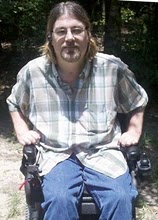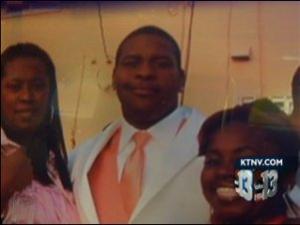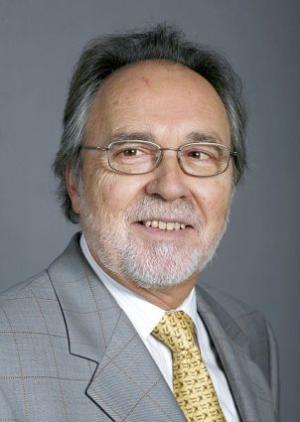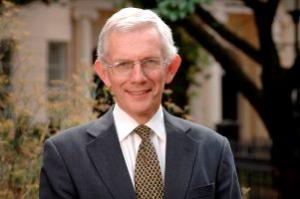Two extreme cases from Texas demonstrate why legislation to protect medical marijuana patients there is badly needed.
Just over two months ago, a Las Vegas narc killed Trevon Cole in a drug raid in his own apartment. The official story grows smellier and smellier, and the cop has shot people controversially before. But observers are still predicting the police shooter will be cleared this week.
When you gun down an old lady on a bogus warrant, then plant pot at the scene to cover your misdeeds, you're a bad cop indeed. Now, Atlanta is paying for some of its bad cops.
Hey, cops: Don't give crack to hookers' boyfriends, don't rip people off and traffic dope, don't seize dope without turning it in, and don't get wasted on meth you stole and crash your cruiser. If only this week's crew had followed those simple instructions.
The death toll in Ciudad Juarez this year is over 1,800 so far, meaning 2010 is on pace to be another record year for murder there. And that's just Juarez.
The latest California poll shows Prop 19 with a ten point lead and 50%. If the proposition can keep its current supporters and win even a small fraction of the undecided, marijuana could be legal in California next year.
A California appeals court Wednesday held that federal law did not preempt California laws allowing medical marijuana dispensaries, but did not decide the bottom line issue: Can cities or counties ban dispensaries?
Will Detroiters be able to vote in November on legalizing marijuana? Petitioners gathered the required number of signatures to put the question onto the ballot, but an unexpected roadblock thrown up by a city commission has sent them to the courts.
A Nevada pot legalization initiative aimed at 2012 is in serious trouble after its main backer pulled its funding.
A respected Swiss politician who rose to international prominence for unraveling Europe's role in the CIA's secret prison program is now calling for an end to global drug prohibition.
The just-retired head of the Royal College of Physicians has joined a growing decriminalization chorus in Britain.
Events and quotes of note from this week's drug policy events of years past.
Asthmatic medical marijuana patient Chris Diaz sits in jail in Brownwood, Texas, facing up to life in prison for a half ounce of marijuana and three grams of hash. Quadraplegic medical marijuana patient Chris Cain may be joining Diaz behind bars in Beaumont, Texas, after he goes to trial next week. When it comes to medical marijuana, Texas isn't California (or even Rhode Island), and don't you forget it, boy!

seat of injustice
Chris Diaz is learning that the hard way. He was supposedly pulled over for an expired license tag (his defenders say the tag was not expired) while en route from Amarillo to Austin, and according to the DPS trooper's report, would not produce a drivers' license or proof of insurance. He was then arrested for failure to identify, and during a subsequent search, police found a small amount of hashish on his person. A search of the vehicle then turned up additional hash and marijuana in a pill bottle from a California medical marijuana provider. Now, Diaz is
facing up to life in prison after being indicted by a Brown County grand jury. He is charged with possession of a controlled substance with intent to deliver, a first-degree felony in the Lone Star State.
Under Texas law, possession of less than two ounces of marijuana is a Class B misdemeanor punishable by up to six months in jail, while possession of hashish is either a state jail felony punishable by up to two years for less than a gram, or a second-class felony punishable by up to 20 years if less than four grams, although probation is also possible.
But because police allegedly read a text message on Diaz's seized cell phone advising a friend that he had some great hash and asking if he wanted any, he was instead indicted on the trafficking charge, punishable by up to life in prison. He remains behind bars -- without his medicine -- on a $40,000 cash bond.
Diaz was diagnosed with asthma just before he turned three, his mother, Rhonda Martin said. "He was on medications ever since. He used a nebulizer, all kinds of inhalers, Albuteral, Advair. He stopped taking them when he was 14 because he didn't like the effects," she recalled. "He said the steroids made him feel agitated and wouldn't take those chemical medications anymore."
While the family was aware of medical marijuana, it was only when Diaz fell ill during a family vacation in California and was hospitalized in intensive care that they first learned about medical marijuana for the treatment of asthma. "We were put in touch with a doctor there, and he recommended it. It was his recommendation Chris was carrying," said Martin.
Neither Brown County prosecutors nor Diaz's court-appointed public defender had responded to Chronicle requests for comment by press time.
Diaz and some of his strongest supporters, including his mother, consider themselves "sovereign citizens," and have a web site,
I Am Sovereign, in which they argue their case and attempt to win support for Diaz. But that set of beliefs, which precludes carrying government-issued identification, is also complicating things for Diaz. "Failure to identify" was the first charge he faced, and he was searched and the cannabis was found subsequent to being charged with that. Similarly, the authorities' lack of any records or ID for Diaz played a role in the setting of the high bail.
He's not having an easy time of it in jail, said Martin. "He is not receiving any medical attention. He eats only organic food, but he's not getting that. He was assaulted last Sunday by a jailer when he asked for medication. The jailer got in his face and started screaming and pushing him. Chris didn't react. He is a peaceful man."
"The reality is that this kid is in jail for having medical marijuana and is looking at life in prison," said Stephen Betzen, director of the
Texas Coalition for Compassionate Care, which is lobbying for a medical marijuana bill next year in the state legislature. "You've got to be kidding me. You don't give drug addicts life in prison, so why would you do that to a patient with a legitimate recommendation from another state?"

Chris Cain
Betzen also had real issues with Diaz being stopped in the first place. "The fact of the matter is that Chris was driving home to Austin with legal plates," he said. "The cops lied and said they were expired. Not only did they lie to pull him over, they took a kid with no record and charged him with a life sentence offense for three grams of hash. The people who are perpetrating this need to be brought to justice and their victims need to be released from jail," said Betzen. "You can't just pull people over because they're brown or from California and begin to search them. There's a whole amendment about that."
"I'm surprised somebody is facing a life sentence for basically half an ounce," said Kris Hermes, spokesman for the medical marijuana support group
Americans for Safe Access. "But in states that don't have medical marijuana laws, authorities are free to arrest and prosecute regardless of whether it is being used medicinally."
Meanwhile, over in Hardin County in East Texas,
Chris Cain, 39, will be rolling his wheelchair to court next week, where the quadriplegic faces a jail sentence for possessing less than two ounces of medical marijuana. Cain, who was paralyzed in a diving accident as a teenager, has been an outspoken medical marijuana advocate for a decade.
He was arrested in 2005 when the Hardin County Sheriff's Office raided his home with the assistance of two helicopters, seized three joints, and threw him in jail. He wound up on probation, but could not use his medicine.
"Within six weeks, the spasticity was so bad he was developing bed sores," said Betzen, so he started using again. "The cops would come by every two weeks to see if he was healthy enough to go to jail."
Now, he faces trial again for possession. "They actually want to put him in jail," exclaimed Betzen. "The sheriff there really has a vendetta against him."
While Texas certainly needs to enter the 21
st Century when it comes to medical marijuana, the problem is larger than the Lone Star State, said Hermes. "It's critical that we develop a federal medical marijuana law so that people are not treated differently in Texas than in California, and patients who need this medicine in Texas should be allowed to use it with fear of arrest and prosecution. Americans for Safe Access is committed not only to encouraging states to pass medical marijuana laws irrespective of federal policy, but also to push the federal government to develop a policy that will treat patients equitably no matter where in the US they live."
back to top
(Update: Officer Yant cleared by inquest as predicted. Family may bring RICO lawsuit.)
On the night of June 11, 21-year-old Trevon Cole and his nine months pregnant fiancé, Sequoia Pearce, were sitting at home in their Las Vegas apartment, settling in for a quiet Friday evening in front of the TV. But Cole didn't live to see the next day. Instead, he was the target of a drug raid and was shot and killed by a Las Vegas narcotics detective as he knelt on his bathroom floor, hands in the air. (Read our earlier coverage here.)

Trevon Cole, killed in his bathroom by a police officer, had just 1.8 ounces of marijuana
Since then, questions and outrage have mounted as the circumstances surrounding Cole's death have emerged. A coroner's inquest, which is done with all fatal shootings by Las Vegas police, is set for Friday. Given the history of such inquests -- only one police killing out of 200 in the past 35 years was found unjustifiable -- justice is unlikely to be done there.
The affidavit in support of the search warrant targeting Cole gave the impression that police thought they had a major drug dealer on their hands. Detective Brian Yant, the officer who wrote the warrant and who pulled the trigger on Cole, wrote that "almost all" drug dealers keep "sophisticated and elaborate" records and that police expected to find such records, as well as guns and drug paraphernalia. Cole had a "lengthy criminal history of narcotics sales, trafficking and possession charges," Yant wrote.
Police found no guns. They found no evidence of a "major drug dealer." They did find a small, unspecified amount of pot (Pearce contends they found no drugs and were angry they could not), a digital scale, a cell phone, and $702 in cash (of which $350 was found to have come from jewelry Pearce pawned days earlier to pay rent). Oh, and a spent .223 caliber rifle cartridge in the bathroom.
The
search warrant affidavit also misidentified Cole, confusing him with another Trevon Cole from Houston, Texas. The other Trevon Cole had a different middle name, was seven years, older, is three inches shorter and a hundred pounds lighter. His "lengthy criminal history"? Three misdemeanor marijuana possession arrests. The only criminal record the now dead Trevon Cole had was for unauthorized use of a motor vehicle as a teenager.
"Don't they ever run the dates of birth down there?" asked an incredulous
David Doddridge, a retired 21-year veteran of the Los Angeles Police Department who now runs a private detective agency and is a member of
Law Enforcement Against Prohibition (LEAP).
"The standard ID is name and date of birth," said
Peter Moskos, a former Baltimore police officer who is now an assistant professor of law, police science, and criminal justice at the John Jay College of Criminal Justice in New York City. "They had a different initial for the middle name. It should have been obvious that this was not the same guy."
Part of the problem is pressure to perform, said Moskos. "These guys are judged by how many warrants they can get," he said. "But it's better to conduct one good warrant than five bad ones."
"Each squad is trying to serve the most warrants, get the most dope, so you have a tendency to exaggerate and embellish, and sometimes even fabricate on the warrants," said Doddridge. "They invent handguns inside the house so they can get a dynamic entry warrant, and then they go in, kicking down doors, rushing in with guns drawn, forcing everybody down on the floor. It's very scary, everyone is going in with guns drawn, they're sometimes shouting over each other, it's a very tense and dynamic situation and just a tremendous opportunity for somebody to get shot," he said.
"It's really crazy, a waste of time and money, but they have to justify their existence," said Doddridge. If they're not serving warrants, they'll get sent back to patrol. You have to produce."
According to the search warrant, police had made three undercover pot buys from the Trevon Cole they ended up shooting. The total haul was 1.8 ounces of marijuana and, also according to the warrant, when police wanted to make a big score -- $400 worth -- with Cole, the alleged major drug dealer, they had to reschedule because Cole didn't have that much on hand.
Not incidentally, under Nevada law, possession of up to an ounce of marijuana is decriminalized. Yant and his dope squad buddies were going after Cole for allegedly selling them amounts of marijuana it wasn't even a crime to possess.
"Like other tragic incidents, this brings into question the need to use such force in raids on people who at best are being charged with a non-violent crime," said Mike Meno, communications director for the
Marijuana Policy Project. "Especially in this case, where officers are coming into a house with guns drawn. We saw a man get killed and it turns out it wasn't even the man they were after."

Trevon Cole and his fiancé, Sequoia Pearce
"This is just another tragic incident in the failed war on marijuana," said Dave Schwartz of
Sensible Nevada, which seeks marijuana law reform there. "People are being killed even for small amounts, and it just makes no sense. This is yet another death caused by prohibition, not by marijuana."
It is also another death caused by Detective Yant. The killing of Cole marked the
third time Yant has controversially used his police firearm. In 2002, he shot and killed a robbery suspect, claiming the suspect, who was on the ground, aimed a weapon at him. But although the suspect's gun was found 35 feet away, coroner's inquest took only half an hour to find the shooting justified.
The following year, Yant shot and wounded a man with a baseball bat, saying he mistook the bat for a shotgun and that the man had attacked him. But the man said he never threatened Yant and dropped the bat before Yant fired. Since he wasn't killed, there was no coroner's inquest, but Yant was exonerated in a departmental investigation.
"Any time an officer is involved in three shootings, they may be justified, but it's a classic red flag example of when the department should wonder about the officer," said Moskos. "There are shoot/don't shoot scenarios where furtive movement may provide some justification for shooting, but this guy Cole didn't have a weapon. In hindsight, it's obvious he was no threat," he said.
"This guy Yant did a lot of bad things in this raid," said Moskos. "He got the wrong person, he shot an unarmed guy. The department certainly has to look at this officer."
Yant is on paid administrative leave pending the coroner's inquest and the results of a departmental investigation.
It could be that Yant is a case of the wrong guy in the wrong job for the wrong reasons. "Some guys like being street cops, some are more analytical and want to be detectives," said Doddridge. "Then you have the gung-ho types, maybe ex-military or wannabe military with their shaved heads. They want to get in on the action, they're the kind of people who gravitate to SWAT or narcotics. In these units, they are disproportionately gung-ho types. It's trouble on top of trouble," he said.
It wasn't always like that, Doddridge recalled. "Back in the day, if we had a drug warrant, we would just drive up in a black and white with our .38s, but now, somebody sells 1.8 ounces of marijuana, you call in the big boys. They have all this federal money, those Byrne grant funds, and they have to justify that. When you have a military mentality, you have to have an enemy, and that makes the war on drugs a war against the people."
"This looks like another fucked up raid and unnecessary death in the drug war," summed up Moskos. "Even in the best case scenario for police, doing undercover buys and raids for small amounts of marijuana seems like a waste of resources. Why do that?"
"The important thing to remember is that hundreds of raids like these occur across the country every year because we are militarizing our police forces and issuing orders to take down houses of people accused of nonviolent offenses," said Meno. "Trevon Cole's case is a perfect example of what can go wrong. He was sitting at home with his fiancé, there was nothing violent going on, and bang! -- he's dead. This was on a Friday night in Las Vegas," noted Meno. "You'd think there would be something more important officers could be doing on a Friday night."
And now for the coroner's inquest. It is performed by the Clark County District Attorney's office and overseen by a court hearing master with a jury of citizens hearing the facts. The goal is to simply find if the death was justified, excusable or criminal in nature.
But no one represents the dead person. The family of the deceased or their attorneys are not allowed to speak present evidence. They are not allowed to call witnesses who might contradict the police or prosecutors' version of events. They can submit written questions, but it is up to the judge to decide whether to ask them. [Editor's Note: The Chronicle has an appointment to interview Cole family attorney Andre Lagomarsino on Thursday and will be posting updated material then.]
The ACLU of Nevada has called the system a "
story-telling exercise, an opportunity for the police, with the assistance of the DA, to tell their side of the story" and likened it to "the sound of one hand clapping." As noted above, in 34 years of inquests and 200 hearings, only one officer has been found criminally negligent.
Justice for Trevon Cole? Don't hold your breath. But the city of Las Vegas will most likely have to pay big time down the road once the inquest is done, and Cole's family then proceeds with its wrongful death lawsuit.
back to top
The city of Atlanta will pay $4.9 million to the estate of Kathryn Johnston, the 92-year-old African American woman killed by Atlanta narcotics officers in a drug raid nearly four years ago. Mayor Kasim Reed announced the settlement Monday morning. The city council approved it that same afternoon.

never forget
On November 21, 2006, Johnston was alone in her home when three Atlanta undercover narcs with a no-knock search warrant based on false information attempted a dynamic entry raid. The elderly woman fired one shot from an old pistol as the intruders tried to break down her door. They responded by firing at least 39 shots at the woman, who died at the scene -- in handcuffs.
No drugs were found. The officers involved attempted to cover their tracks by planting marijuana they had seized in a separate raid. They also tried to get an informer to say that he had provided them with the information in the warrant when he hadn't. The narcs' cover-up unraveled when the informant went to the FBI.
After an investigation by the FBI, five officers pleaded guilty for their roles in the shooting and cover-up. The three officers directly involved in the botched raid are serving sentences of five, six and ten years. Another six were reprimanded for not following departmental policy.
Reed said the settlement was an important step for the city and the police department, which came under intense, withering criticism in the raid's aftermath. "As a result of the incident, several police officers were indicted in federal and state court on charges and were later convicted and sentenced for their actions," said Reed, adding that the narcotics unit has been totally reorganized.
There is more the department needs to do, said Christina Beamud, executive director of the Atlanta Citizens Review Board. "This goes a long way to encourage the community to begin to heal and to address whatever issues they have with the police department," she told
WABE FM Monday afternoon. But, she added, reforms in the department are still needed. One group of rogue officers may be gone, she said, "But where you have a group of officers continuing to do the same kind of improper procedures, then you have to look at your systems." She said the department should scrap quotas for drug arrests and end the policy of allowing officers to moonlight when not on duty.
Johnston's heirs will receive $2.9 million this year and $2 million in 2012 under the terms of the settlement.
back to top
Hey, cops: Don't give crack to hookers' boyfriends, don't rip people off and traffic dope, don't seize dope without turning it in, and don't get wasted on meth you stole and crash your cruiser. If only this week's crew had followed those simple instructions, they wouldn't be in trouble now. But they are. Let's get to it:
In Austin, Texas, a former Austin police officer was convicted Tuesday of giving crack cocaine to a man who was the boyfriend of a prostitute he knew. Scott Lando, 48, was convicted of delivery of a controlled substance. He also faces charges of aggravated assault with a deadly weapon and prostitution. The crack incident took place in 2006. He was fired in 2008. He is out on bail.
In Jackson, Mississippi, two Jackson police officers were arrested last Friday on a variety of charges for stealing money from the home of a man who had been robbed. Officers Marvent Brooks, 35, and David Dreblow, 25, are charged with theft over $1,000, two counts of official misconduct, tampering with evidence and witness coercion. But there will be more to come. In a search of Brooks' home after the arrests, authorities found marijuana, crack pipes, a digital scale, gas grenades, homemade silencers and guns, according to a search warrant. The search warrant specified that authorities were looking for "photographs or electronic recordings regarding narcotics possession or trafficking." Both officers are out on $5,000 bail. Authorities said any additional charges against Brooks resulting from the search warrant will be presented to a grand jury.
In Felicity, Ohio, a Clermont County police officer pleaded not guilty August 12 to a charge of tampering with evidence. Felicity Police Capt. Delmas Pack was arrested last month and is accused of taking drugs off someone he stopped. The drugs were allegedly "not handled properly." Prosecutors have said little more about the case.
In Des Moines, Iowa, a former Pleasant Hill police officer pleaded guilty August 12 to drug and burglary charges for stealing methamphetamine from an evidence room. Former Sgt. Daniel Edwards, 42, pleaded guilty to possession of a controlled substance, operating while intoxicated, and third-degree burglary. Edwards went down after he crashed his cruiser on April 1. He was fired after a drug test showed he had meth in his system when he crashed.
back to top
by Bernd Debusmann, Jr.
Mexican drug trafficking organizations make billions each year smuggling drugs into the United States, profiting enormously from the prohibitionist drug policies of the US government. Since Mexican president Felipe Calderon took office in December 2006 and called the armed forces into the fight against the so-called cartels, prohibition-related violence has killed more than 28,000 people, the government reported this month. The increasing militarization of the drug war and the arrest of dozens of high-profile drug traffickers have failed to stem the flow of drugs -- or the violence -- whatsoever. The Merida initiative, which provides $1.4 billion over three years for the US to assist the Mexican government with training, equipment and intelligence, has so far failed to make a difference. Here are a few of the latest developments in Mexico's drug war:

Santiago Papasquiaro, site of Saturday's firefight
In Ciudad Juarez,
17 people were murdered across the city. Among the dead were two members of CIPOL, the police intelligence service, as well as a young couple. Several people were shot outside a nightclub, and three men between the ages of 20 and 25 were killed after their car was ambushed by a group of gunmen.
Saturday, August 14
In Durango,
at least 11 gunmen were killed after a two-hour firefight with the army near the town of Santiago Papasquiaro. Three troops were wounded during the gun battle. Many believe that Sinaloa Cartel boss Joaquin "El Chapo" Guzman is hiding in Durango.
In Monterrey, at least eight gunmen kidnapped a plastic surgeon while he was performing surgery. It was later reported that one of his patients was the target of the raid. Police and army personnel launched an operation to find the abducted surgeon, with no success.
Sunday, August 15
In Morelos,
at least six people were killed. In one incident, three young men were gunned down after a botched kidnapping attempt by gunmen outside their home. In another incident, the body of an unidentified man was found bound with tape and plastic. A note threatening the lives of local police officers was left alongside the body.
Monday, August 16
In Ciudad Juarez,
20 people were killed in several incidents in the city. The incidents included two separate triple homicides. Several of the bodies discovered in the city were bound with tape and showed signs of torture. Over the weekend, 51 people were killed. Monday’s killings bring the 2010 death toll in Ciudad Juarez to approximately 1,884.
In Oaxaca,
gunmen killed eight members of a hunting party near Mexico's Gulf Coast. The exact motive for the killings is unclear. In Monterrey and in Reynosa, armed men threw hand grenades at the local offices of Televisa.
Tuesday, August 17
In a video made public on Tuesday,
an alleged member of the Juarez Cartel claimed that the cartel is hiring attractive young women to serve as assassins. The suspect, Rogelio Amaya, claims that around roughly 30 women between the ages of 18 and 30 have been recruited and trained to carry out hits, which many of them have. Rogelio Amaya is thought to be a member of La Linea, the enforcement arm of the Juarez Cartel.
In Culiacan,
four prison inmates were murdered and were discovered in a dumpster. All four had their throats slit. Three of the four men had been arrested earlier this month following a firefight with police. Violence between rival drug trafficking gangs is common in Mexican prisons.
Wednesday, August 18
In Nuevo Leon,
the body of a kidnapped mayor was discovered three days after his abduction. Edelmiro Cavazos of was the mayor of Santiago, Nuevo Leon. He was discovered near a waterfall near the town after having been kidnapped by a group of at least 15 armed men wearing uniforms of the federal police force, which was disbanded nine years ago.
Total Body Count for the Week: 112
Total Body Count for the Year: 7,030
Read the previous Mexico Drug War Update here.back to top
Support for Proposition 19, California's Tax and Regulate Cannabis marijuana legalization initiative is at 50% in the latest Survey USA poll, which was released today. The figure is unchanged from last month's Survey USA poll.
Some 40% of respondents opposed the initiative, which would allow Californians 21 or over to possess up to an ounce of weed and to grow up to 25 square feet worth. The initiative would also give counties and municipalities the local option of permitting, taxing, and regulating marijuana sales and cultivation.
Survey USA contacted 1,000 adult Californians, found 837 of them registered to vote, and polled 602 of them it considered most likely to vote. The margin of sampling error is +/- 4.1%
This poll is in line with other recent polls, including
one we reported on earlier this week that had support for a general marijuana legalization question at 51%. Like other recent telephone polls, today's Survey USA poll shows higher levels of support for legalization than the face-to-face polls, suggesting that some potential voters are reluctant to say they support a controversial idea like legalization, but may do so in the privacy of the voting booth.
Support for Prop 19 was stronger among men (55%) than women (45%), stronger among people under 50 (55%) than over (45%), and stronger among Democrats (60%) and independents (53%) than Republicans (36%). Prop 19 garnered majority support from blacks (54%) and whites (51%), but not Hispanics (45%) or Asians (44%).
Not particularly surprisingly, support for legalization correlates with support for liberal positions on other social issues. More than three-quarters (76%) of people who described themselves as liberals supported Prop 19, while only 27% of conservatives did. Nearly two-thirds of people who oppose the Tea Party (64%) and support abortion rights (65%) said they would vote for Prop 19. But the measure also won majority support from both gun owners (54%) and non-gun owners (51%).
Geographically, the poll showed the strongest support for Prop 19 in the Greater Los Angeles area (56%) and the San Francisco Bay area (53%). Support dropped under 50% in the Central Valley (45%) and in inland Southern California (38%).
Most of the polls so far have shown Prop 19 leading, but having a tough time getting over the 50% mark. Still, that suggests that Prop 19 can get to that magical 50% plus one by winning over even a very small percentage of undecided voters -- so long as it can keep the voters that it has and get them to the polls.
back to top
In a long-anticipated but now somewhat anticlimactic ruling, the California Fourth District Court of Appeal in Santa Ana on Wednesday decided not to decide whether localities can ban medical marijuana dispensaries, sending the case back to Orange County Superior Court for further hearings. The court did, however, reverse a lower court's ruling that federal law preempts state law.
The case,
Qualified Patients Association (QPA) v. City of Anaheim, deals with an Anaheim ordinance that makes operating or working at a dispensary a misdemeanor criminal offense, but could also affect numerous other localities that have banned dispensaries. The medical marijuana advocacy group
Americans for Safe Access (ASA), which filed an amicus brief in the case, has identified
133 California localities with bans in place.
QPA had opened five months before Anaheim enacted its ban and sued shortly thereafter, arguing that the state's Compassionate Use Act (CUA) and Medical Marijuana Program Act (MMPA) blocked localities from banning dispensaries. They lost in Orange County Superior Court in 2008, with the judge holding that federal drug law preempted the state's medical marijuana laws.
No, it doesn't, the appeals court held in a unanimous decision. "We agree with plaintiffs the trial court erred as a matter of law in concluding federal regulation of marijuana in the Controlled Substances Act preempted California's decision in the CUA and the MMPA to decriminalize specific medical marijuana activities under state law. We therefore reverse the judgment of dismissal and remand the matter to allow plaintiffs to pursue their declaratory judgment cause of action," said the opinion authored by Judge Richard Aronson. The court also wondered how "a city may criminalize as a misdemeanor a particular use of property the state expressly has exempted from 'criminal liability,'" as it does in the MMPA.
Still, ASA chief counsel Joe Elford, author of the brief mentioned above and who argued the case before the appeals court last September, wasn't exactly jumping for joy. He wanted the issue settled once and for all.
"While we understand the difficult nature of deciding this issue, the court's ruling delays a decision that will affect thousands of patients who remain without access to their medication because of hostile jurisdictions," he said. "The silver lining to this decision is that the court has reinstated the lawsuit and is providing the plaintiffs the opportunity to prove that dispensary bans are illegal under state law."
In addition to the plaintiffs and defendants, the case pitted medical marijuana advocates against law enforcement associations and the governments of 33 cities. Those associations and city governments all filed briefs opposing the appeal.
"We will continue to fight for the right of patients to access medical marijuana through medical marijuana dispensaries, which is provided for by the Medical Marijuana Program Act, previous case law and guidelines issued by the California Attorney General," continued Elford. "Whether or not the Anaheim case is brought before this court again, this issue will eventually be reheard and we are confident of the eventual outcome."
back to top
The Coalition for a Safer Detroit, sponsors of a municipal initiative that would legalize the possession of up to an ounce of pot for adults 21 or over in the Motor City, has appealed a surprise decision Monday by the city's Election Commission that knocked the initiative off the ballot.

Detroit skyline
"If you're on the cutting edge of social change, litigation is just a cost of doing business," coalition leader Tim Beck told the
Detroit Free Press yesterday after the group filed an appeal with Wayne County Circuit Court.
The court Friday agreed to hold an expedited hearing on the case. That will occur on August 26.
The coalition handed in more than 6,000 voter signatures earlier this year, and the initiative was approved by the same Detroit Election Commission that killed it Monday. After it was approved, in accordance with city law, the initiative went before the Detroit City Council, which could have voted to make the initiative law. By failing to vote on the initiative, the Council cleared the way for the voters to make their preferences known in November -- or so everyone thought.
But on Monday, the Election Commission voted 3-0 to remove the measure from the ballot. The surprise move came after Detroit Corporation Counsel and commission member Krystal Crittenden told the commission that in the opinion of the city's law department, which she oversees, state law forbidding marijuana possession preempted the measure.
Now, it will be up to the courts to determine whether Detroiters will have the right to vote on the initiative. Stay tuned.
back to top
A Nevada marijuana legalization initiative aimed at the 2012 ballot is on life-support after its primary funder, the Marijuana Policy Project (MPP), pulled its financial backing from the effort, both MPP and David Schwartz, head of its state affiliate, Nevadans for Sensible Marijuana Laws, told the Chronicle this week.

Nevada clergy press conference supporting the
2006 Nevada marijuana legalization initiative
Under the proposed initiative, people 21 and over could possess up to an ounce of marijuana, as well as pot paraphernalia, but they could not grow their own. Instead, consumers would purchase it from one of 120 authorized retail outlets, who would in turn purchase their supplies from one of 50 authorized wholesale growers. The proposal includes a $50 an ounce excise tax at the wholesale level, and sales tax would apply on retail transactions.
"It's no secret that ballot initiatives are an expensive proposition," said MPP spokesman Mike Meno. "We've had to cut back in a few places, and Nevada is one of them."
"The initiative is definitely in jeopardy," said Schwartz, "It wasn't about whether we could win, but it came down to a lack of funding."
Legalization initiatives in 2002 and 2006 lost with 39% and 44% of the vote, respectively, and just two weeks ago, the current initiative was
polled at 42%. Should the initiative find a way to move forward, proponents will have their work cut out trying to shift that percentage between now and November 2012.
MPP had backed the two previous legalization initiatives and signature-gathering campaigns with millions of dollars in support, largely to pay petitioners. Without paid signature-gatherers, proponents of the ongoing effort will have a very difficult time getting the 97,000 valid signatures they need to make the November 2012 ballot.
Nevadans for Sensible Marijuana Laws is closing up shop, but the fight will continue, said Schwartz. "I'm in the process of starting up a new organization, Sensible Nevada, and we will see where to go from here."
back to top
In an interview Friday with the Austrian newspaper Kurier and reported in the Swiss newspaper Tagesanzeiger, prominent Swiss politician Dick Marty called drug prohibition a failure. Drugs should instead be legalized, taxed and regulated, he said.

Dick Marty
Marty was the state prosecutor in Ticino for 15 years and in 1987 won an award from the International Narcotic Enforcement Officers Association. He was elected to the Swiss Council of State in 1995 and the Parliamentary Assembly of the Council of Europe in 1998. He has hold both positions ever since. Marty gained international prominence when he was appointed by the Council to investigate the collaboration of various European governments in the CIA's secret prison program and issued a
damning report in 2006.
Drug prohibition has been "a total bust," Marty said Friday. "It only leads to high prices and corresponding profits for the drug mafia, without diminishing the access to drugs."
Recalling his years as a prosecutor, Marty added that it was only the small-time dealers who got paraded through the courts, while the drug lords were "little bothered" and stayed in luxury hotels. And despite the endless low-level prosecutions, it has never been so easy to get drugs, he added.
Money wasted on enforcing drug prohibition could instead be spent on prevention, and after legalization, governments could control the drug sector through regulation and taxation, as is the case with alcohol and tobacco, Marty said.
Although he conceded that "drug prices will fall" and consumption would rise -- perhaps only temporarily -- if prohibition is ended, Marty said societies must confront the problem of consumption, much as the US did after the end of Alcohol Prohibition. He pointed to a Swiss example, as well: the use of heroin maintenance programs to reintegrate hard-core addicts into the social fabric. "These people are supported medically and they can work again," he said.
Ending prohibition must be a global affair, he said, pointing to the emerging discussion of the theme in Mexico as it is buffeted by prohibition-related violence that has left 28,000 dead in the past 3 ½ years. Still, Marty isn't holding his breath. "Worldwide drug legalization isn't going to happen" in my lifetime, he predicted.
Dick Marty is only 65. Let's see if we can't prove him wrong.
back to top
The former head of Britain's Royal College of Physicians has joined the growing chorus calling for radical reforms of the country's drug laws. Sir Ian Gilmore, who left his post just weeks ago, told the Guardian Monday the government should consider decriminalizing drugs because prohibition neither reduced crime nor improved health.

Prof. Ian Gilmore
"I'm not saying we should make heroin available to everyone, but we should be treating it as a health issue rather than criminalizing people," said Gilmore. "This could drastically reduce crime and improve health."
Just over three weeks ago, Nicholas Green, chairman of the Bar Council (the British equivalent of the ABA), called for decriminalization, saying it was
"rational" to consider "decriminalizing personal drug use." "Crime was costing Britain $20 billion a year, he pointed out.
"[Decriminalization] can free up huge amounts of police resources, reduce crime and recidivism and improve public health. All this can be achieved without any overall increase in drug usage," Green said. "If this is so, then it would be rational to follow suit."
Gilmore, for his part, went out of his way to draw attention to yet another recent call for radical reform. He praised a recently published
article in the British Medical Journal by Stephen Rolles, senior policy analyst at the
Transform Drug Policy Foundation, which, he said, clearly made the argument for decriminalization.
In that article, Rolles noted that not only had prohibition worsened health problems such as HIV, it had also created numerous secondary harms, including "vast networks of organized crime, endemic violence related to the drug market, corruption of law enforcement and governments, militarized crop eradication programs (environmental damage, food insecurity, and human displacement), and funding of terrorism and insurgency."
Rolles' call for decriminalization also won the support of Dr. Fiona Godlee, editor of the British Medical Journal. "He says, and I agree, that we must regulate drug use, not criminalize it," she wrote in the journal.
"Sir Ian's statement is yet another nail in prohibition's coffin," Transform's Danny Kushlick told the Guardian. "The Hippocratic oath says: 'First, do no harm.' Physicians are duty bound to speak out if the outcomes show that prohibition causes more harm than it reduces."
Kushlick also prodded the government to act. "With a prime minister and deputy prime minister both longstanding supporters of alternatives to the war on drugs, at the very least the government must initiate an impact assessment comparing prohibition with decriminalization and strict legal regulation."
Drip, drip, drip. And so the prohibitionist consensus erodes even further.
back to top
August 23, 1839: The United Kingdom captured Hong Kong as a base as it prepared for war with Qing China. The ensuing three-year conflict was later known as the First Opium War.
August 20, 1990: The US House of Representatives Committee on Government Operations releases a report on the results of Operation Snowcap, the Reagan-Bush administration program aimed at stopping the flow of drugs into the United States at their source. Snowcap's goal had been to eliminate coca crops, cocaine processing laboratories, clandestine landing strips, and other trafficking operations in the coca producing countries of South America. The report found that less than one percent of the region's cocaine had been destroyed by this campaign and that authorities in Bolivia, Peru, and Colombia were deeply involved in narcotics trafficking.
August 20, 1994: The Guardian reports that Raymond Kendall, secretary general of Interpol, said, "The prosecution of thousands of otherwise law-abiding citizens every year is both hypocritical and an affront to individual, civil, and human rights... Drug use should no longer be a criminal offense."
August 19, 1999: Confronting questions about possible past drug use, Republican presidential candidate George W. Bush told reporters he had not used illegal drugs in 25 years, and added that if voters insisted on knowing more, "they can go find somebody else to vote for."
August 25, 2001: The Denver Post reports that US District Judge John L. Kane, Jr. said: "The best way for a kid who is caught using or selling drugs to get off is to select a congressman, senator or high-ranking official as one's parent." Indeed, after the son of the now-disgraced US Rep. Randy "Duke" Cunningham (R-CA), was found flying an airplane loaded with 400 pounds of marijuana, he was freed on bail but then tested positive for cocaine three times. He wound up getting 2 1/2 years in prison -- a long time, but not by the standards of US criminal justice today. Former Education Secretary Richard Riley's son got just six months' house arrest for conspiring to sell cocaine and marijuana, though he had been indicted earlier on charges that can lead to life in prison.
August 22, 2003: David Borden, Executive Director of StoptheDrugWar.org, writes an open letter to the Chief Judge of the Superior Court of the District of Columbia, Rufus G. King III, stating his refusal to serve jury duty. "... I have determined that unjust drug laws, and the corrosion wrought by the drug war on the criminal justice system as a whole, compel me to conscientiously refuse jury service," says Borden. Visit http://stopthedrugwar.org/openletter to read the full letter.
back to top











